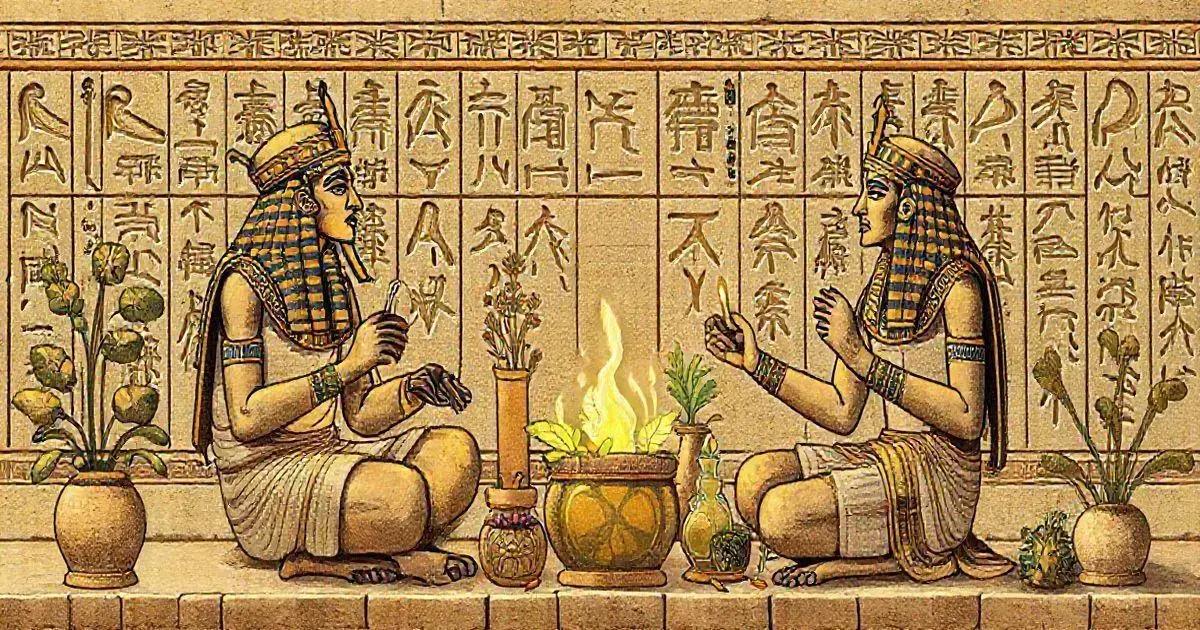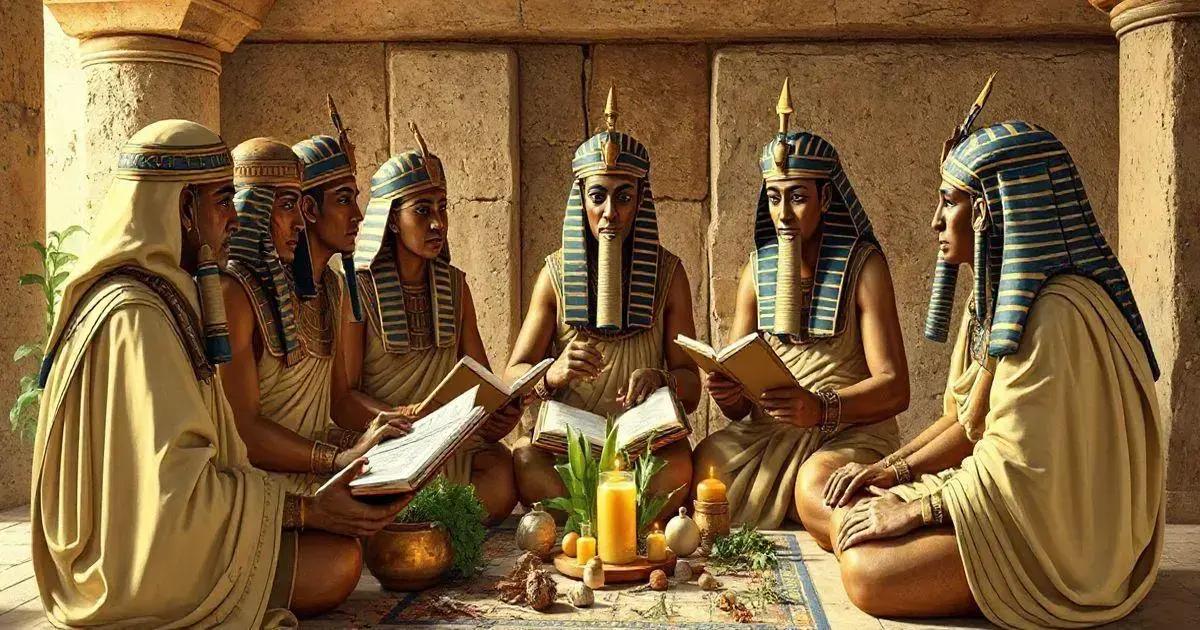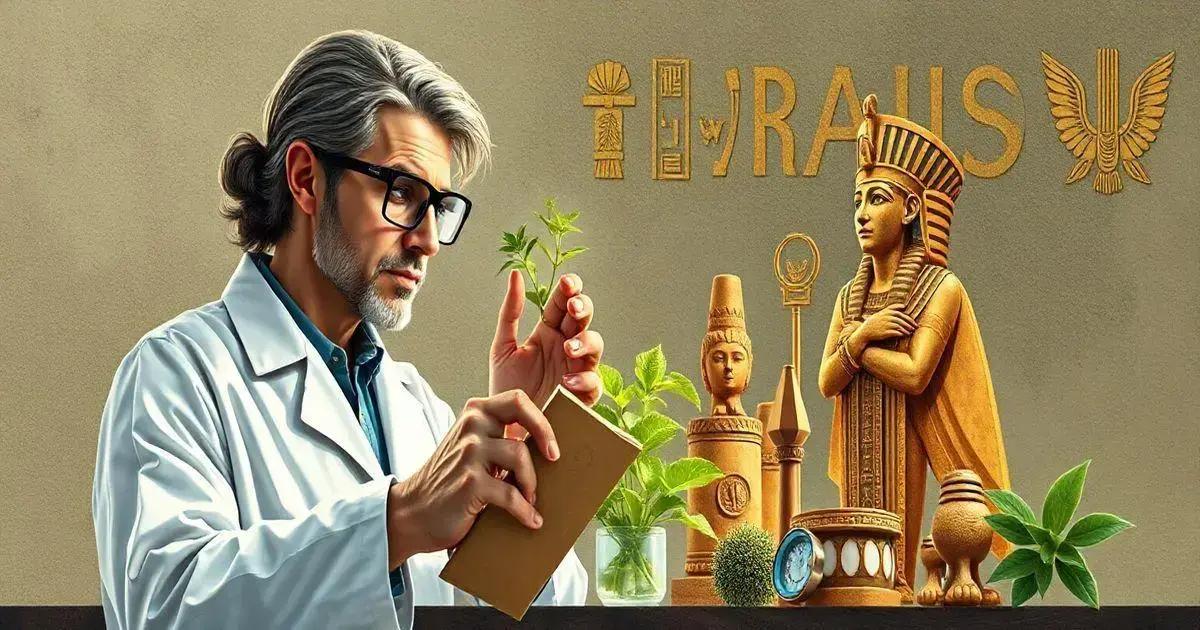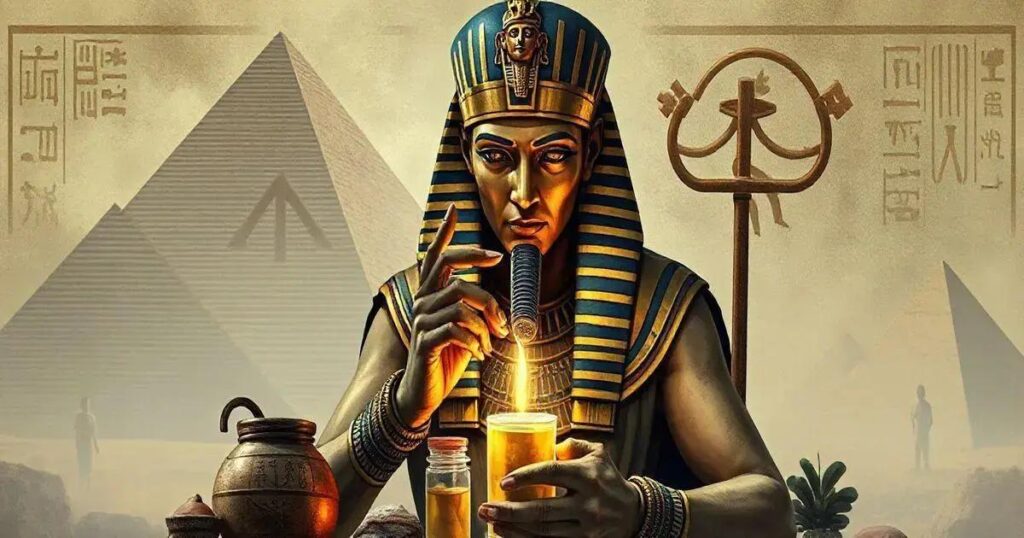The tricks of the Egyptian Pharaohs can serve as valuable preventative measures today, blending ancient herbal remedies, holistic health practices, and modern scientific insights to enhance overall well-being and prevent disease.
Can the Trick of the Egyptian Pharaohs truly serve as a preventative measure? This intriguing question leads us into the fascinating intersection of ancient wisdom and modern health practices. Through the ages, civilizations have sought innovative ways to overcome health challenges, and the methods used by the Pharaohs of Egypt are no exception. In this article, we will explore the historical significance of these techniques, their relevance to contemporary preventative measures, and how modern science evaluates their efficacy.
Understanding the Trick of the Egyptian Pharaohs

Understanding the Trick of the Egyptian Pharaohs involves delving into ancient practices that were believed to promote health and longevity. The Pharaohs, renowned for their extravagant lifestyles, utilized various natural substances and rituals to enhance their well-being. These methods often combined elements of spirituality and medicinal knowledge.
Natural Remedies Used by Pharaohs
The Egyptians harnessed the power of herbs and oils. Garlic was a favorite, known for its antifungal and antibacterial properties. Honey was also prevalent, celebrated for its healing and preservative powers. Together, these ingredients illustrate the Egyptians’ understanding of basic health principles, even by today’s standards.
Rituals and Spiritual Practices
The Pharaohs would perform rituals that integrated medicine with spirituality. Prayers and offerings to gods were common, believed to protect against disease. The Egyptians thought that aligning oneself with divine forces could bring health benefits. This illustrates their view of health as a blend of physical and spiritual wellness.
Impact on Egyptian Society
This understanding of health influenced not only the royalty but also the general population. Knowledge of medicinal herbs and protective rituals spread among communities. Health was a communal responsibility, and temples often became centers for healing, where priests practiced both medicine and spiritual healing.
Lessons from Ancient Practices
Modern society can learn from these ancient practices. The holistic approach of combining physical treatment with spiritual well-being resonates with contemporary health trends. While scientific validation is essential, revisiting these ancient tricks may inspire new paths for integrative health solutions today.
Historical Context and Uses

Historical Context and Uses of the tricks used by the Egyptian Pharaohs reveals a rich tapestry of ancient practices aimed at health preservation. The Egyptians had a unique approach to health that stemmed from their worldview. They believed everything was connected—body, mind, and spirit. This belief shaped their medical practices.
Ancient Medical Texts
Medical knowledge in ancient Egypt was documented in texts like the Ebers Papyrus and the Smith Papyrus. These texts detail various treatments, including herbal potions and surgical procedures, demonstrating a sophisticated understanding of medicine. The Pharaohs relied on these texts to guide their health choices.
Role of Priests and Healers
The Pharaohs often consulted priests and healers who acted as both spiritual leaders and medical practitioners. They performed rituals and prescribed remedies, merging spiritual beliefs with practical medicine. As healers, they played a vital role in society, treating not only the elite but also common people.
Cultural Significance of Health
Health in ancient Egypt was deeply tied to religious beliefs. The Egyptians viewed illness as a disruption of the order created by the gods. Preventative measures were crucial to maintain both physical and spiritual health. Practices included rituals to honor deities associated with healing, like Horus and Thoth.
Practical Applications
Pharaohs utilized a variety of treatments, from aromatherapy to dietary regimens. Honey, essential oils, and herbs were common components in their health strategies. These practices often transcended the royal court and influenced the general populace, highlighting their societal value.
Potential Preventative Measures Today

Potential Preventative Measures Today draw inspiration from the ancient practices of the Egyptian Pharaohs. These time-tested methods can complement modern health strategies. By integrating ancient wisdom with contemporary science, we can explore various ways to enhance our well-being and prevent disease.
Herbal Remedies
One effective preventative measure is the use of herbal remedies. Many herbs used by the Pharaohs are still valued for their health benefits today. For instance, garlic is known for boosting the immune system. Similarly, ginger can help reduce inflammation and support digestive health.
Aromatherapy
Aromatherapy is another practice that stems from ancient Egyptian traditions. Oils like frankincense and myrrh were used for their healing properties. Today, these essential oils can provide mental clarity, reduce stress, and support emotional well-being. Incorporating these therapies into daily routines can foster a healthier lifestyle.
Mind-Body Practices
The Pharaohs understood the importance of mental health. Mind-body practices such as yoga and meditation can be modern adaptations of ancient rituals. These practices help reduce anxiety and promote relaxation, creating a balanced approach to health.
Nutritional Strategies
Adopting a balanced diet rich in natural foods can serve as a vital preventative measure. The ancient Egyptians used a variety of grains, fruits, and vegetables. Today, focusing on whole, unprocessed foods and maintaining proper hydration are essential for preventing chronic diseases.
Modern Science and Ancient Wisdom

Modern Science and Ancient Wisdom come together to present a unique perspective on health and wellness. Ancient Egyptian practices offer insights that resonate with contemporary scientific findings. By merging these two worlds, we can create a well-rounded approach to preventing disease.
Research on Herbal Efficacy
Modern research validates many ancient herbal practices. Studies have shown that herbs like garlic and honey possess antimicrobial and antioxidant properties. These findings confirm what ancient Egyptians understood about their health benefits, illustrating the value of herbal remedies in today’s medical landscape.
Acknowledging Holistic Health
Ancient Egyptians viewed health as a balance of body, mind, and spirit. This holistic perspective aligns with modern practices such as holistic medicine, which emphasizes treating the whole person rather than just symptoms. By incorporating ancient wisdom into modern treatments, we can enhance overall health outcomes.
Integrative Approaches
Integrative medicine combines conventional treatments with alternative therapies. This approach echoes the practices of the Pharaohs, who utilized both spiritual rituals and practical remedies. Research shows that therapies like acupuncture and meditation can improve mental and physical health, highlighting the importance of a multi-faceted approach.
Preventative Strategies Backed by Science
Modern health strategies often emphasize preventative care. Many of these strategies are rooted in ancient practices. Regular exercise, healthy eating, and stress management are essential in both ancient Egypt and today’s health guidelines. These aligned strategies underscore the timeless nature of health maintenance.
Embracing Ancient Wisdom for Modern Health
The exploration of ancient Egyptian health practices reveals valuable insights into preventing disease. From the use of herbal remedies to holistic approaches, the wisdom of the Pharaohs still holds relevance today.
By integrating these time-tested methods with modern scientific understanding, we can enhance our wellness strategies. The convergence of traditional knowledge and contemporary research paves the way for effective preventative measures in our daily lives.
Ultimately, recognizing the value of both ancient wisdom and modern science empowers us to make informed health choices. Embracing this duality can lead to improved well-being and a healthier future.
FAQ – Frequently Asked Questions about the Egyptian Pharaohs’ Health Practices
What were some common herbal remedies used by the Pharaohs?
The Pharaohs commonly used herbal remedies like garlic and honey, known for their antimicrobial and healing properties.
How did the Egyptians view the relationship between health and spirituality?
The Egyptians believed that health was a balance of body, mind, and spirit, often incorporating spiritual rituals into their medical practices.
Can modern science validate ancient practices?
Yes, modern research has confirmed the efficacy of many ancient practices, particularly regarding herbal remedies and holistic health approaches.
What role did priests play in ancient Egyptian medicine?
Priests served as healers, performing both spiritual rituals and practical medical treatments to help maintain the health of the Pharaohs and the general populace.
How can I incorporate ancient health practices into my lifestyle today?
You can incorporate practices like using herbal remedies, engaging in holistic health strategies, and maintaining a balanced diet similar to those valued in ancient Egypt.
Are modern preventative health strategies influenced by ancient wisdom?
Yes, many modern preventative health strategies draw inspiration from ancient practices, emphasizing diet, exercise, and mental health as crucial components.













